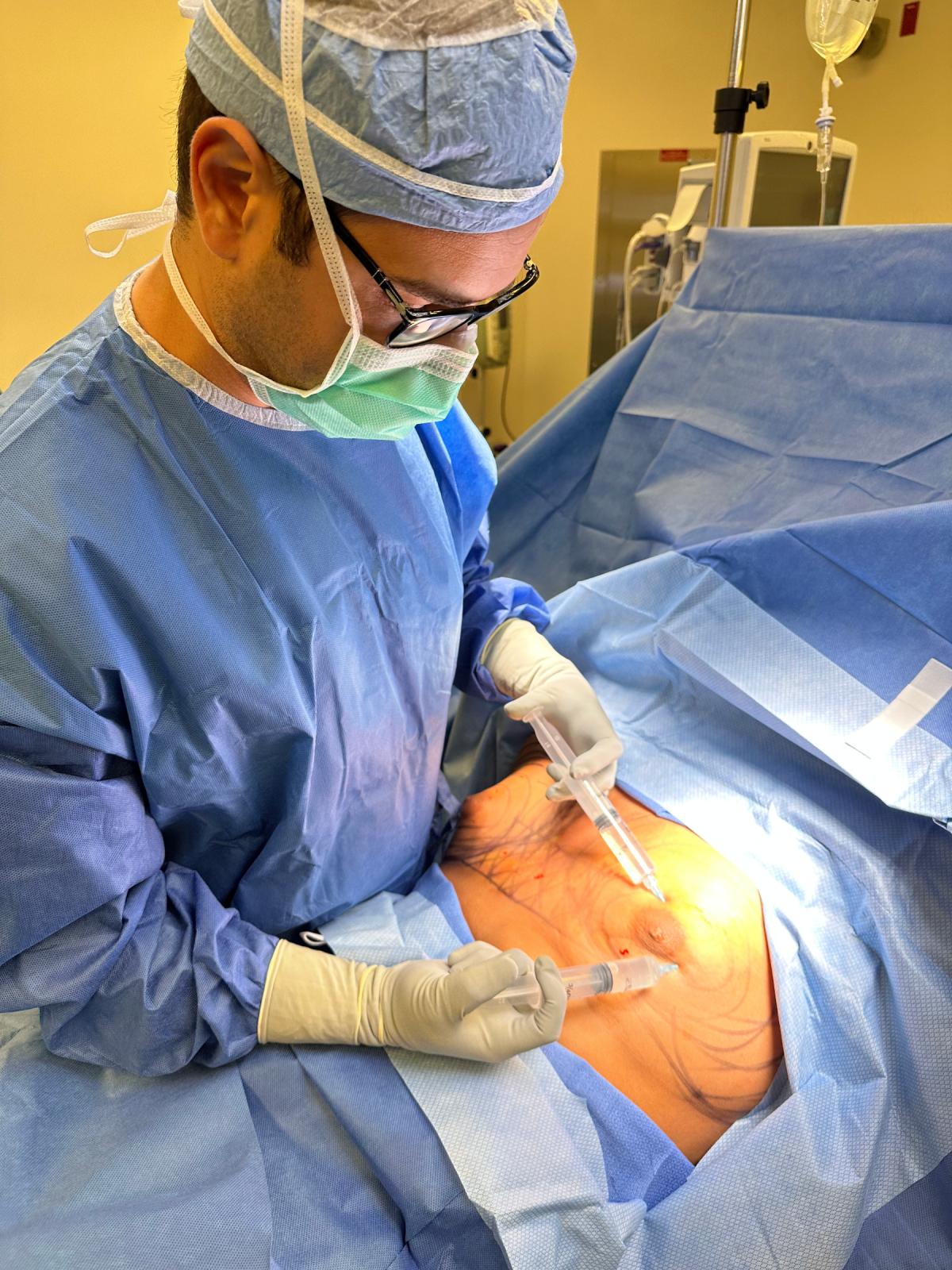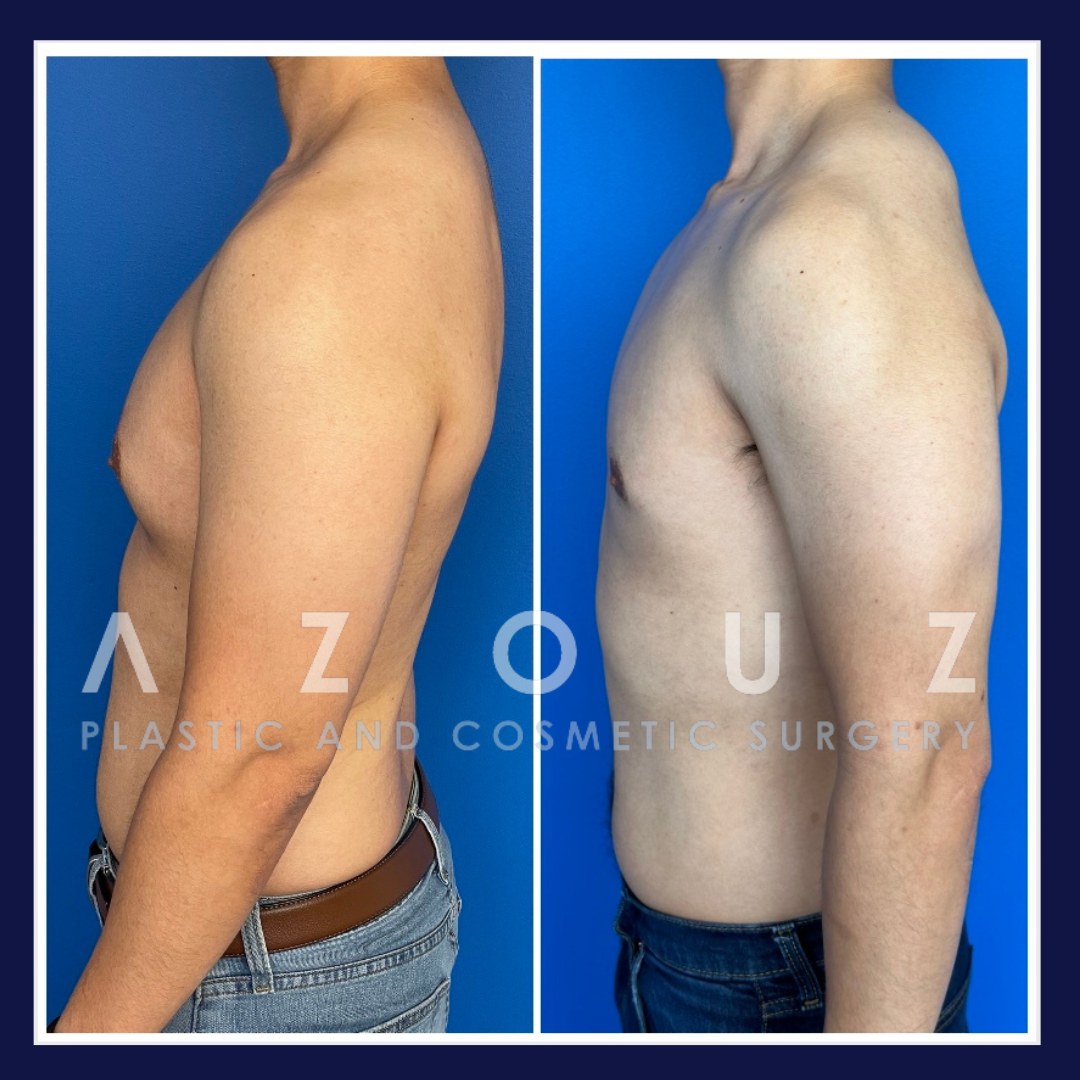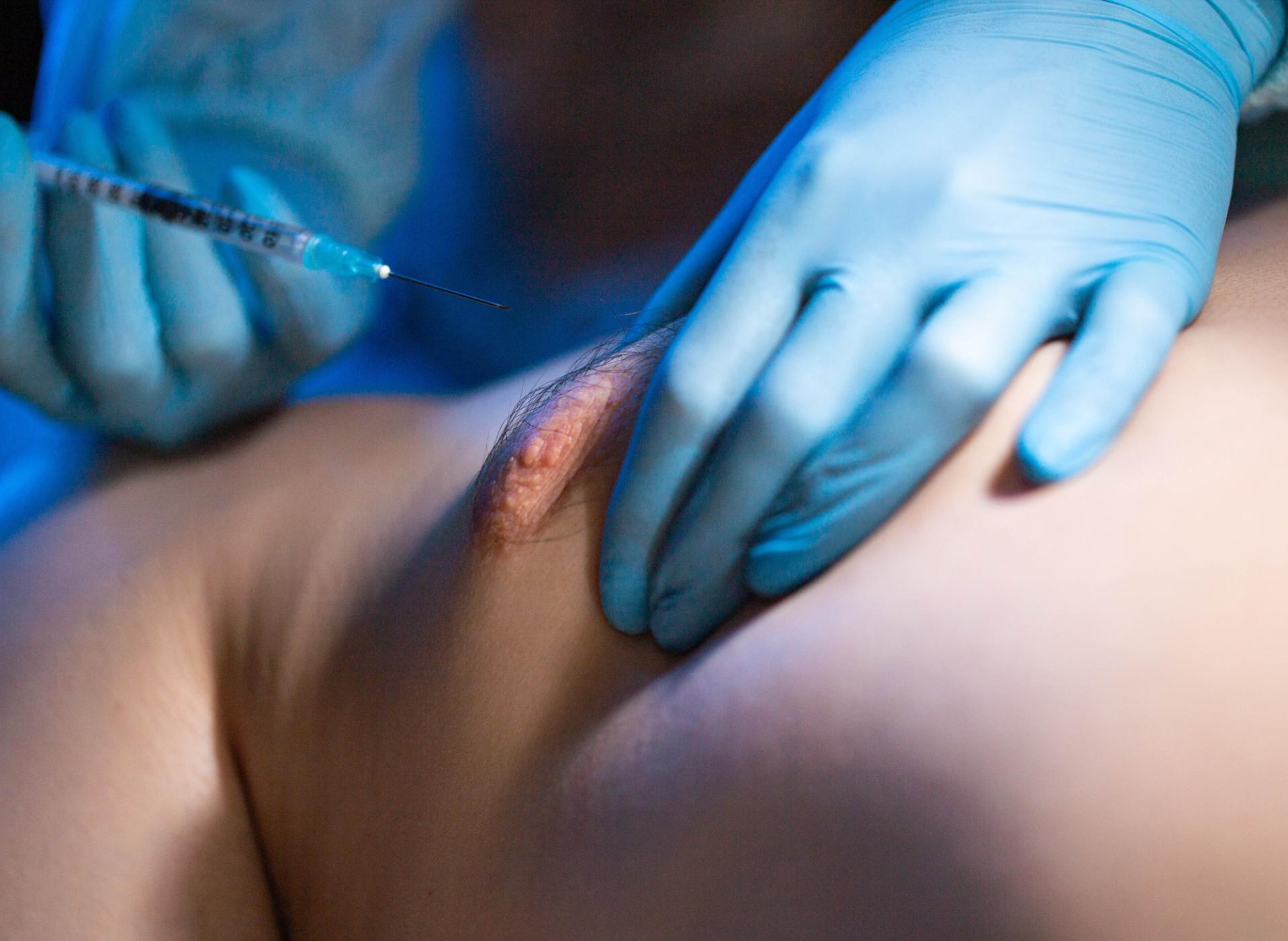How to prevent bruising and hematomas after gynecomastia surgery
Male breast reduction, or gynecomastia surgery, is a life-changing procedure that gives many men their confidence and self-esteem back. Gynecomastia surgery does, however, have potential risks, such as hematomas and bruising, just like any surgical procedure. These unintended complications can be upsetting, but you can minimize their occurrence with the right care and the skills of Dallas plastic surgeon Dr. Solomon Azouz.
Understanding Hematomas and Bruising
Gynecomastia surgery, like many other surgical procedures, has the potential side effect of hematoma and bruising. A localized collection of blood outside of blood vessels or the skin layer is known as a hematoma. It can happen if blood vessels bleed after surgery. In the event that they become significant, hematomas can become painful, swell, and require medical attention. Bruising of the skin, also known as ecchymosis, is common after surgery. Although excessive bruising can be unsightly and uncomfortable, it is a normal reaction to trauma or surgical intervention.
What causes bruising after surgery?
- Surgical Technique: The exact techniques used during gynecomastia surgery, such as the approach to liposuction and glandular tissue removal, have a major influence on the likelihood of bruising and hematomas. Board-certified plastic surgeon Dr. Azouz is well-versed in minimizing tissue strain and using precise methods to reduce the likelihood of postoperative problems. Furthermore, Dr. Azouz’s minimally invasive procedures decrease the possibility of tissue tension and subsequent bruising.
- Clotting disorders: Patients with bleeding or clotting disorders, as well as those taking anticoagulant medications, should inform their gynecomastia surgeon about their conditions. Special precautions can be taken to reduce bleeding during gynecomastia surgery.
- Patient Age: Age-related factors play a role in gynecomastia surgery. Patients over the age of 65 may have less skin elasticity and more fragile blood vessels, making them more prone to postoperative bruising. Dr. Azouz modifies techniques specific to each patient to help improve recovery.
- Skin Type: The thickness and elasticity of a patient’s skin, particularly in the chest area, can affect the extent and visibility of bruising after gynecomastia surgery. Individuals with thinner or fairer skin may be more prone to visible bruising.
- Preoperative Medications and Supplements: Certain medications, such as aspirin and nonsteroidal anti-inflammatory drugs (NSAIDs), can increase the risk of bleeding. Patients are usually advised to stop taking blood thinners before surgery to reduce the risk of postoperative bleeding and bruising.
- Postoperative Care: It is crucial to follow the postoperative care instructions. This includes staying away from physically demanding activities that could increase the possibility of bleeding and hematomas. Dr. Azouz will also advise on compression garments after gynecomastia surgery.
- Genetics: Genetic factors influence an individual’s tendency to bruise. Dr. Azouz will plan the procedure and consider these factors when discussing the patient’s expectations during the initial consultation.
- Musculature: Body builders are more likely to bruise due to their large muscles which tend to bleed more easily after surgery.
- Smoking: Due to its negative effects on circulation, smoking can delay the recovery from gynecomastia surgery. Patients are advised to quit smoking both prior to and following surgery in order to lower these risks.
Tips to reduce bruising before surgery
Before undergoing gynecomastia surgery, it is critical to make informed decisions in order to ensure a successful and complication-free outcome. It’s important to choose an experienced, board-certified plastic surgeon who specializes in gynecomastia procedures and is trained to use surgical techniques that specifically target gynecomastia, reducing tissue trauma and, as a result, the risk of postoperative complications such as bruising and hematomas.
Furthermore, open and thorough communication with your gynecomastia specialist is essential. Confirm all medications and supplements you are taking, especially those that may affect bleeding or clotting. Dallas plastic surgeon Dr. Azouz may modify your medication regimen prior to surgery to reduce the risk of postoperative bleeding and hematomas. Additionally, preparing your body for surgery by following Dr. Azouz’s preoperative instructions, including dietary modifications, abstaining from alcohol, and quitting smoking, is essential in decreasing the risk of complications.
Prevent Bruising During Gynecomastia Surgery
 Expert technique is crucial in preventing postoperative bruising and hematomas during gynecomastia surgery. Skilled surgeons like Dr. Azouz use gynecomastia-specific tissue handling techniques that are gentle and precise. Dr. Azouz’s techniques are designed to cause as little damage to blood vessels and surrounding tissues as possible, which reduces the likelihood of postoperative complications. Dr. Azouz also uses a tumescent solution, which contains a vasoconstrictor that can reduce bleeding and bruising during surgery by constricting blood vessels.
Expert technique is crucial in preventing postoperative bruising and hematomas during gynecomastia surgery. Skilled surgeons like Dr. Azouz use gynecomastia-specific tissue handling techniques that are gentle and precise. Dr. Azouz’s techniques are designed to cause as little damage to blood vessels and surrounding tissues as possible, which reduces the likelihood of postoperative complications. Dr. Azouz also uses a tumescent solution, which contains a vasoconstrictor that can reduce bleeding and bruising during surgery by constricting blood vessels.
Another important aspect of gynecomastia surgery is effective hemostasis or bleeding control. Dr. Azouz uses a variety of medications and techniques to reduce bleeding, which is critical for reducing the risk of hematomas after the procedure. Furthermore, Dr. Azouz uses customized surgical instruments, such as liposuction cannulas, that are tailored to the patient’s specific needs. These specialized tools can significantly reduce tissue trauma, lowering the risk of gynecomastia surgery-related postoperative bruising.
Reducing bruising after Gynecomastia Surgery
Following postoperative care instructions is critical to ensuring a smooth recovery after surgery. Dr. Azouz places all patients in compression garments after their drainless gynecomastia surgery. It is important to continue wearing these compression garments even after surgery. These garments apply controlled pressure to the surgical site, reducing swelling, increasing circulation, and lowering the risk of hematomas. Furthermore, following gynecomastia surgery, it is critical to strictly adhere to your cosmetic surgeon’s directed rest and activity limitations. To minimize excessive bleeding and stress in the surgical area, avoid intense activities and heavy lifting.
Applying cold compresses to the surgical site can also help to reduce swelling and lower the chance of developing a hematoma after gynecomastia surgery. Additionally, maintaining a healthy diet and drinking plenty of water before and after gynecomastia surgery will help your body’s natural healing processes and lower your chance of complications. You can ensure a quick and improved recovery from gynecomastia surgery by making regular follow-up appointments with board-certified plastic surgeon Dr. Azouz. Additionally, during these appointments, Dr. Azouz will be able to examine your healing status and make any necessary adjustments.

Gynecomastia surgery can be a life-changing procedure. Preventing bruising and hematomas following gynecomastia surgery is a varied process that begins with meticulous preparation and continues throughout the surgical journey. Patients can considerably reduce the likelihood of these risks by selecting a board-certified plastic surgeon with experience in gynecomastia operations. A collaborative approach between the patient and their surgeon, guided by open communication and adherence to prescribed recommendations, is critical to getting the best results. While some bruising and swelling are normal, with the correct preparations and a professional surgical team, patients can embark on their gynecomastia surgery path with confidence, knowing that the risk of postoperative bruising and hematoma has been thoroughly minimized. For individualized treatment and professional direction about gynecomastia surgery in Dallas, call (972) 702-8888 to schedule a consultation with Dr. Azouz.
Posted on behalf of
